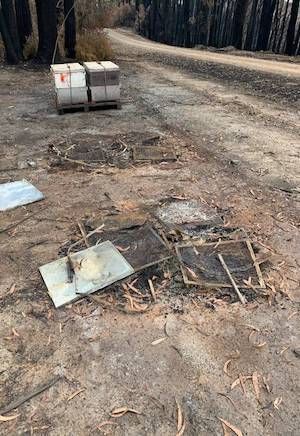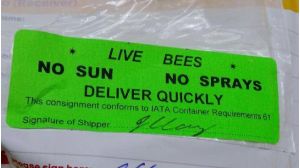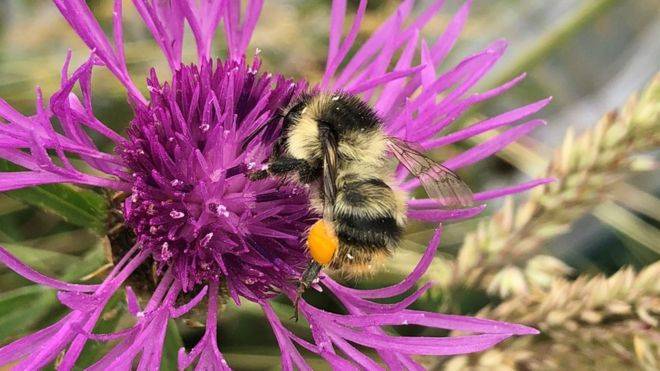An endangered bee species is thriving on land where flower-rich meadows were reintroduced, the National Trust said.
Lytes Cary Manor in Somerset has been designated as one of two "exemplary" sites for the rare shrill carder bee - the other being the RSPB's Rainham Marshes in Essex.
The Bumblebee Conservation Trust said the "champion sites" would help secure the long-term future of the species.
The bees are only found in a few places in southern England and south Wales.
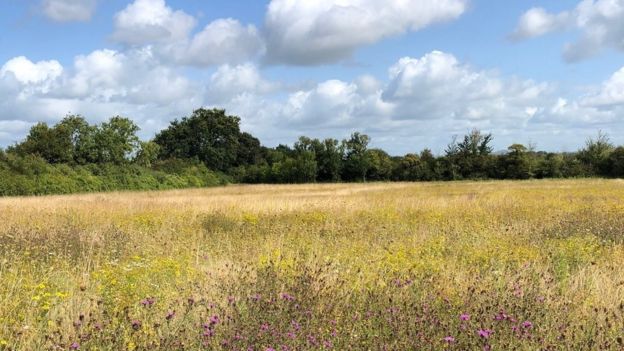 NATIONAL TRUST
NATIONAL TRUST
Like many bees, the shrill carder - which gets its name from its high-pitched buzz - has suffered from the disappearance of 97% of the UK's wildflower meadows since the 1950s, causing huge declines in food sources for insects.
Lytes Cary Manor's status as an "exemplary" site comes after almost a decade of work by volunteers, staff and farm tenants on the National Trust's 361-acre (146 hectare) estate to recreate wildflower-rich areas.
It is part of the trust's wider work on its land to create more than 2,470 acres (1,000 hectares) of flower-rich grasslands as part of efforts to boost nature in the countryside.
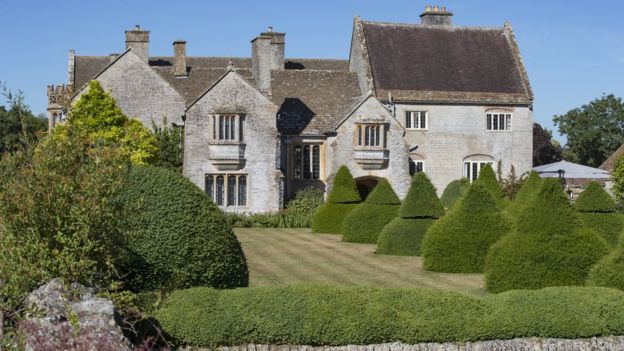 NATIONAL TRUST
NATIONAL TRUST
Mark Musgrave, the manor's lead ranger, said: "Over the winter our volunteers planted hundreds of white dead nettle and comfrey as well as a mixture of wildflowers from seed, which will act as a wider source of nectar and pollen for foraging worker bees, including yellow rattle and black knapweed.
"We are looking at places where we can plant more comfrey, another fantastic nectar source, and will be protecting key sites with flowers known to be good for the bees."
Sinead Lynch, from the Bumblebee Conservation Trust, said: "With the National Trust being one of the largest landowners of flower-rich grasslands, its involvement is crucial for the conservation and recovery of the species."
BBC News 28/4/20

